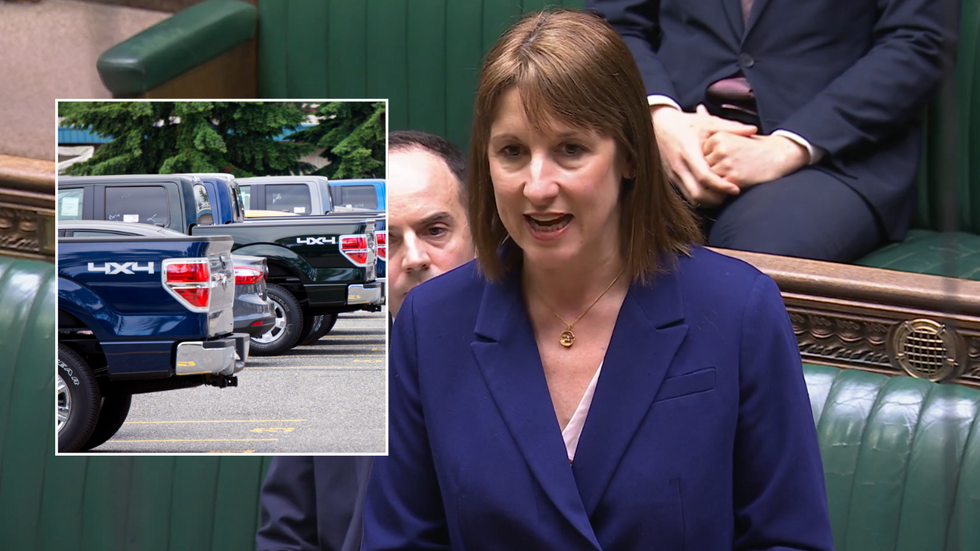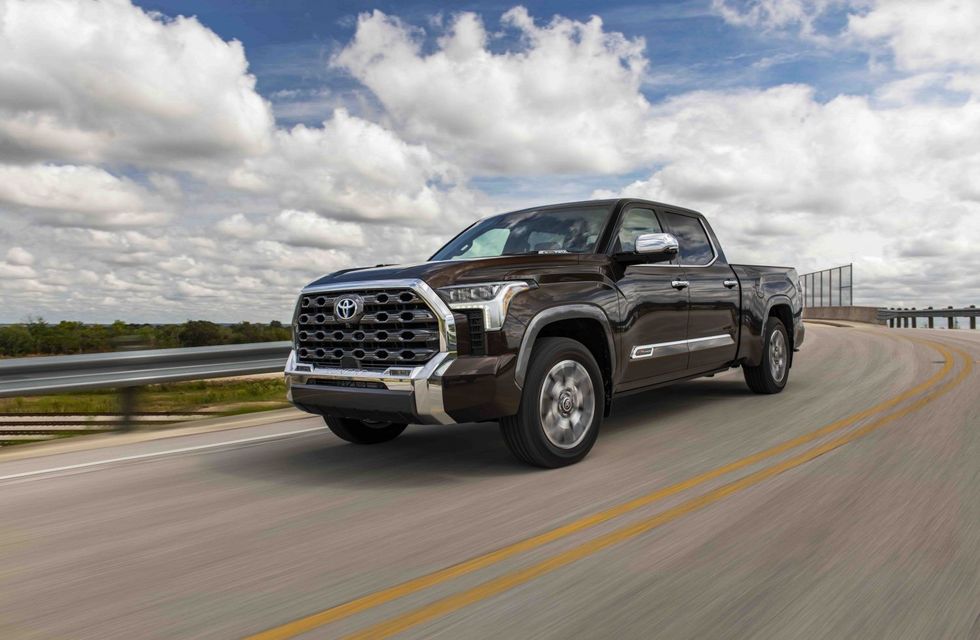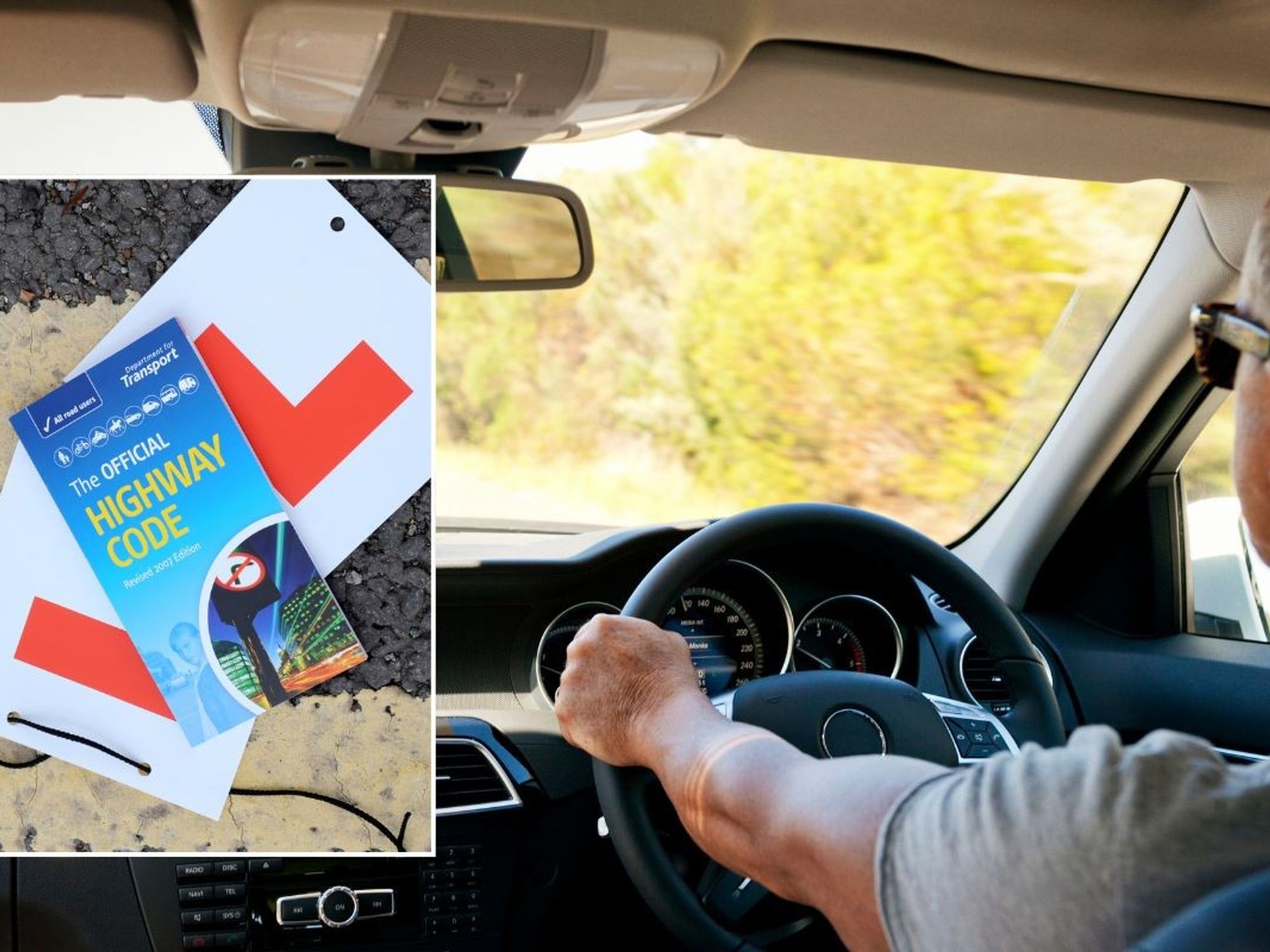WATCH: Rachel Reeves announces changes to the Benefit-in-Kind taxes
GB NEWS
The Treasury Minister acknowledged the impact of the double cab pick-up truck reclassification
Don't Miss
Most Read
Trending on GB News
Labour has admitted it had to make a "difficult decision" regarding the reclassification of double cab pick-up trucks for tax purposes, which could see drivers now pay thousands of pounds extra.
Treasury Minister James Murray made the admission during a House of Commons session today when questioned about the Chancellor's controversial tax change that took effect this week.
The reclassification, which came into force on April 6, meant that most double cab pick-ups will now be treated as cars rather than vans for Benefit-in-Kind tax purposes.
Responding to Labour MP Margaret Mullane for Dagenham and Rainham, who requested a 12-month delay to the implementation, Murray said there are "generous transitional arrangements in place to mitigate the impact" and that the Government "has had to take difficult decisions".
Do you have a story you'd like to share? Get in touch by emailingmotoring@gbnews.uk

The changes to double cab pick-up trucks came into effect on April 6
PARLIAMENT UK/GETTY
Under the new rules, HMRC will no longer align its interpretation of "car" and "van" with definitions used for VAT purposes.
Previously, double cab pick-ups with a payload capacity of one tonne or more were classified as vans, while those under one tonne were treated as cars.
The change means most double cab pick-ups will now be classified as cars when calculating benefit charges, resulting in higher tax costs for users.
This classification offered significant tax advantages, as vans typically attract lower BiK rates than cars with HMRC now detailing how "most double cab pick-ups are expected to be classified as cars when calculating the benefit charge".
The addition of accessories such as hard tops could affect classification, with HMRC accounting for a generic weight of 45kg for hard tops, potentially pushing some vehicles below the one-tonne threshold.
To help drivers get used to the changes, the Government has introduced transitional arrangements to ease the impact on businesses affected by the new rules.
Employers who purchased, leased, or ordered double cab pick-ups before April 6, 2025, can continue to use the previous tax treatment until either disposal, lease expiry, or April 5, 2029, whichever comes first.
HMRC provided several examples to clarify the rules, including that vehicles purchased after April 6 would immediately fall under the new classification.
For instance, a pick-up ordered in January 2025 but delivered in September 2025 would still qualify for the previous tax treatment under the transitional arrangements. The transitional period aims to give businesses time to adjust their vehicle policies and financial planning.
The reclassification has sparked concern across multiple industries, with a petition launched calling on the Government to reverse the decision.
The petition, which has already gathered 1,729 signatures, claims the change "will harm many businesses, farmers, tradespeople, and individuals relying on double cab pick-ups for work."
It argued that the reclassification "drastically raises costs by increasing Benefit-in-Kind tax and lowering capital allowances".
LATEST DEVELOPMENTS:
- Driving laws to be challenged in court after electric vehicle rule changes amid calls to 'use cars less'
- Police operating HGVs catch thousands of drivers breaking major Highway Code rules - 'Dangerous and selfish!'
- Elon Musk's net worth drops below $300billion as Tesla Takedown protests rage on - 'They want to kill me'

A petition calling for the reversal of the tax measure has already gathered thousands of signatures from drivers
TOYOTADuring today's parliamentary session, Mullane specifically asked the Chancellor if he would "introduce a 12-month delay" to the tax change.
She noted that "manufacturers and commercial customers feel they haven't had sufficient time to adjust to the new changes."
In his response, the Treasury Minister highlighted that the Autumn Budget 2024 included "over £2billion over five years to support the automotive sector".








